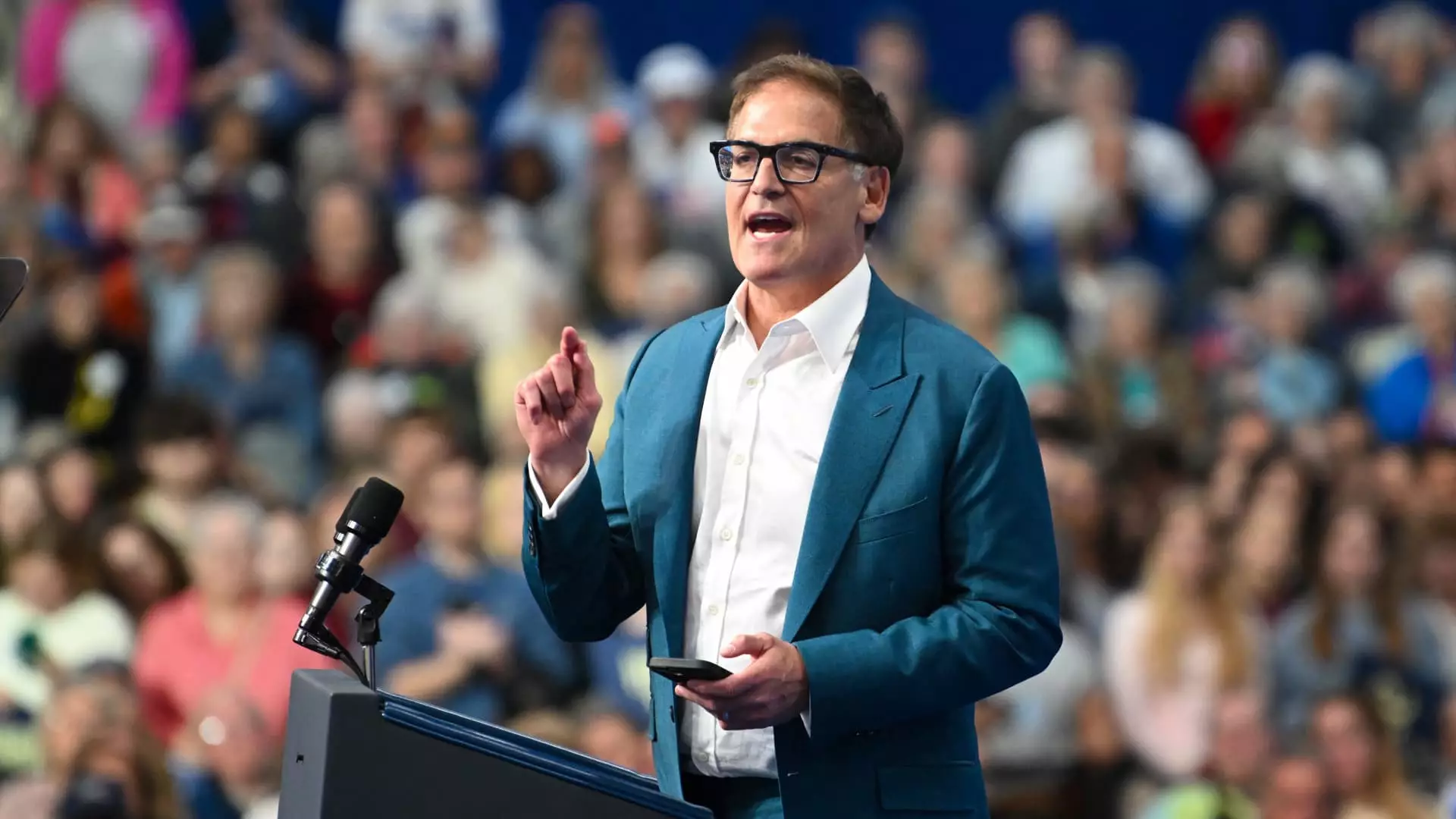Billionaire entrepreneur Mark Cuban has made headlines recently, provoking discussions not just concerning his business acumen but also his political inclinations. Despite actively campaigning for Vice President Kamala Harris, particularly against former President Donald Trump, Cuban remains firm in distancing himself from any political aspirations. In a candid interview with ABC’s “This Week,” he stated unequivocally, “I have no interest in being a politician of any type,” emphasizing his passion for entrepreneurship over political ambitions. This statement, however, poses some contradiction, as it marks a conceptual shift from his earlier implications regarding a potential government role.
Cuban’s involvement in Harris’s campaign has raised eyebrows, especially as he has positioned himself as a surrogate for her presidential run. Previously, the “Shark Tank” star expressed interest in stepping into the role of Securities and Exchange Commission (SEC) Chair, directly criticizing the current leadership under Gary Gensler. His remarks about potentially placing his name in contention for such a significant position indicate a fluctuating stance that may confuse his supporters and political observers alike.
As Cuban lends his voice to Harris’s campaign, he intertwines his entrepreneurial insights with his critiques of existing regulatory frameworks. For instance, he has argued vigorously for a reevaluation of corporate regulations, particularly concerning the Federal Trade Commission (FTC) under Lina Khan’s stewardship. Describing Khan’s antitrust agenda as more harmful than beneficial, Cuban’s criticism reveals a deeper economic concern: the balance between fostering innovation and imposing regulatory compliance. His viewpoint suggests that if Harris were to ascend to the presidency, a considerable overhaul of regulatory leadership might be necessary to create a more conducive environment for businesses, especially in the tech sector.
Cuban’s push for a change in regulatory leadership reflects a broader sentiment among entrepreneurs who often feel stifled by stringent regulations that can hinder their ability to innovate and compete. His advocacy for deregulation, or at the very least, a more balanced regulatory approach, underscores a frequently witnessed tension between government oversight and the entrepreneurial spirit, which is central to American capitalism.
Mark Cuban’s identity as a “disruptor” continues to shape his public persona and strategic approach in both business and politics. Statements such as “I like being a disruptor as an entrepreneur” resonate with his followers who appreciate a candid critique of the status quo. Yet, this disruptor narrative also reveals the inherent contradictions in his public declarations. While he champions innovation and entrepreneurship, his active engagement in politics suggests a desire to influence economic policies without fully committing to the political sphere.
Cuban’s dichotomy—being a catalyst for change while simultaneously rejecting formal political roles—offers an intriguing lens through which to analyze the evolving relationship between business leaders and politics in the contemporary landscape. As he continues to support Harris’s vision for America, it remains to be seen whether his entrepreneurial insights will merely serve as campaign rhetoric or translate into substantive policy discussions that could reshape the future of American business. Ultimately, Cuban embodies the complexities of modern political discourse, where entrepreneurial innovation intersects with the often polarizing world of governance.


Leave a Reply